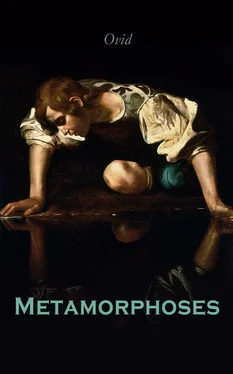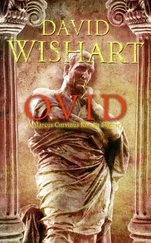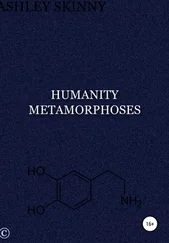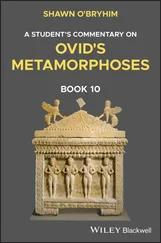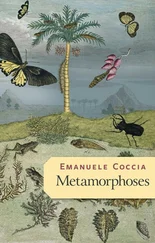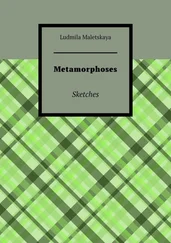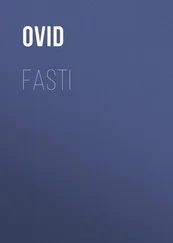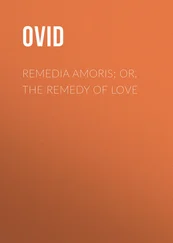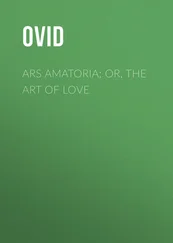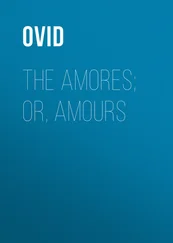Ovid - Metamorphoses
Здесь есть возможность читать онлайн «Ovid - Metamorphoses» — ознакомительный отрывок электронной книги совершенно бесплатно, а после прочтения отрывка купить полную версию. В некоторых случаях можно слушать аудио, скачать через торрент в формате fb2 и присутствует краткое содержание. Жанр: unrecognised, на английском языке. Описание произведения, (предисловие) а так же отзывы посетителей доступны на портале библиотеки ЛибКат.
- Название:Metamorphoses
- Автор:
- Жанр:
- Год:неизвестен
- ISBN:нет данных
- Рейтинг книги:3 / 5. Голосов: 1
-
Избранное:Добавить в избранное
- Отзывы:
-
Ваша оценка:
- 60
- 1
- 2
- 3
- 4
- 5
Metamorphoses: краткое содержание, описание и аннотация
Предлагаем к чтению аннотацию, описание, краткое содержание или предисловие (зависит от того, что написал сам автор книги «Metamorphoses»). Если вы не нашли необходимую информацию о книге — напишите в комментариях, мы постараемся отыскать её.
Metamorphoses — читать онлайн ознакомительный отрывок
Ниже представлен текст книги, разбитый по страницам. Система сохранения места последней прочитанной страницы, позволяет с удобством читать онлайн бесплатно книгу «Metamorphoses», без необходимости каждый раз заново искать на чём Вы остановились. Поставьте закладку, и сможете в любой момент перейти на страницу, на которой закончили чтение.
Интервал:
Закладка:
And now the son of Cephisus had added one to three times five years, and he might seem to be a boy and a young man as well. Many a youth, 69and many a damsel, courted him; but there was so stubborn a pride in his youthful beauty, that no youths, no damsels made any impression on him. The noisy Nymph, who has neither learned to hold her tongue after another speaking, nor to speak first herself, resounding Echo, espied him, as he was driving the timid stags into his nets. Echo was then a body, not a voice; and yet the babbler had no other use of her speech than she now has, to be able to repeat the last words out of many. Juno had done this; because when often she might have been able to detect the Nymphs in the mountains in the embrace of her husband , Jupiter, she purposely used to detain 70the Goddess with a long story, until the Nymphs had escaped. After the daughter of Saturn perceived this , she said, “But small exercise of this tongue, with which I have been deluded, shall be allowed thee, and a very short use of thy voice.” And she confirmed her threats by the event. Still, in the end of one’s speaking she redoubles the voice, and returns the words she hears. When, therefore, she beheld Narcissus 71wandering through the pathless forests, and fell in love with him, she stealthily followed his steps; and the more she followed him, with the nearer flame did she burn. In no other manner than as when the native sulphur, spread around 72the tops of torches, catches the flame applied to it . Ah! how often did she desire to accost him in soft accents, and to employ soft entreaties! Nature resists, and suffers her not to begin; but what Nature does permit, that she is ready for; to await his voice, to which to return her own words.
By chance, the youth, being separated from the trusty company of his attendants, cries out, “Is there any one here?” and Echo answers “Here!” He is amazed; and when he has cast his eyes on every side, he cries out with a loud voice, “Come!” Whereon she calls the youth who calls. He looks back; and again, as no one comes, he says, “Why dost thou avoid me?” and just as many words as he spoke, he receives. He persists; and being deceived by the imitation of an alternate voice, he says, “Let us come together here;” and Echo, that could never more willingly answer any sound whatever, replies, “Let us come together here!” and she follows up her own words, and rushing from the woods, 73is going to throw her arms around the neck she has so longed for. He flies; and as he flies, he exclaims, “Remove thy hands from thus embracing me; I will die first, before thou shalt have the enjoyment of me.” She answers nothing but “Have the enjoyment of me.” Thus rejected, she lies hid in the woods, and hides her blushing face with green leaves, and from that time lives in lonely caves; but yet her love remains, and increases from the mortification of her refusal. Watchful cares waste away her miserable body; leanness shrivels her skin, and all the juices of her body fly off in air. Her voice and her bones alone are left.
Her voice still continues, but they say that her bones received the form of stones. Since then, she lies concealed in the woods, and is never seen on the mountains: but is heard in all of them . It is her voice alone which remains alive in her.
EXPLANATION.
It appears much more reasonable to attempt the explanation of this story on the grounds of natural philosophy than of history. The poets, in their fondness for basing every subject upon fiction, probably invented the fable, to explain what to them appeared an extraordinary phenomenon. By way of embellishing their story, they tell us that Echo was the daughter of the Air and the Tongue, and that the God Pan fell in love with her; by which, probably, the simple fact is meant, that some person, represented under the name of that god, endeavored to trace the cause of this phenomenon.
If, however, we should endeavor to base the story upon purely historical grounds, we may suppose that it took its rise from some Nymph, who wandered so far into the woods as to be unable to find her way out again; and from the fact that those who went to seek her, hearing nothing but the echo of their own voices, brought back the strange but unsatisfactory intelligence that the Nymph had been changed into a voice.
FABLE VII.
Narcissus falls in love with his own shadow, which he sees in a fountain; and, pining to death, the Gods change him into a flower, which still bears his name.
Thus had he deceived her, thus, too, other Nymphs that sprung from the water or the mountains, thus the throng of youths before them . Some one, therefore, who had been despised by him , lifting up his hands towards heaven, said, “Thus, though he should love, let him not enjoy what he loves!” Rhamnusia 74assented to a prayer so reasonable. There was a clear spring, like silver, with its unsullied waters, which neither shepherds, nor she-goats feeding on the mountains, nor any other cattle, had touched; which neither bird nor wild beast had disturbed, nor bough falling from a tree. There was grass around it, which the neighboring water nourished, and a wood, that suffered the stream to become warm with no rays of the sun. Here the youth, fatigued both with the labor of hunting and the heat, lay down, attracted by the appearance of the spot, and the spring; and, while he was endeavoring to quench his thirst, another thirst grew upon him .
While he is drinking, being attracted with the reflection of his own form, seen in the water , he falls in love with a thing that has no substance; and he thinks that to be a body, which is but a shadow. He is astonished at himself, and remains unmoved with the same countenance, like a statue formed of Parian marble. 75Lying on the ground, he gazes on his eyes like two stars, and fingers worthy of Bacchus, and hair worthy of Apollo, and his youthful cheeks and ivory neck, and the comeliness of his mouth, and his blushing complexion mingled with the whiteness of snow; and everything he admires, for which he himself is worthy to be admired. In his ignorance, he covets himself; and he that approves, is himself the thing approved. While he pursues he is pursued, and at the same moment he inflames and burns. How often does he give vain kisses to the deceitful spring; how often does he thrust his arms, catching at the neck he sees, into the middle of the water, and yet he does not catch himself in them. He knows not what he sees, but what he sees, by it is he inflamed; and the same mistake that deceives his eyes, provokes them. Why, credulous youth , dost thou vainly catch at the flying image? What thou art seeking is nowhere; what thou art in love with, turn but away and thou shalt lose it; what thou seest, the same is but the shadow of a reflected form; it has nothing of its own. It comes and stays with thee; with thee it will depart, if thou canst but depart thence.
No regard for food, 76no regard for repose, can draw him away thence; but, lying along upon the overshadowed grass, he gazes upon the fallacious image with unsatiated eyes, and by his own sight he himself is undone. Raising himself a little while , extending his arms to the woods that stand around him, he says, “Was ever, O, ye woods! any one more fatally in love? For this ye know, and have been a convenient shelter for many a one. And do you remember any one, who ever thus pined away, during so long a time, though so many ages of your life has been spent? It both pleases me and I see it; but what I see, and what pleases me, yet I cannot obtain; so great a mistake possesses one in love; and to make me grieve the more, neither a vast sea separates us, nor a long way, nor mountains, nor a city with its gates closed; we are kept asunder by a little water. He himself wishes to be embraced; for as often as I extend my lips to the limpid stream, so often does he struggle towards me with his face held up; you would think he might be touched. It is a very little that stands in the way of lovers. Whoever thou art, come up hither. Why, dear boy, the choice one, dost thou deceive me? or whither dost thou retire, when pursued? Surely, neither my form nor my age is such as thou shouldst shun; the Nymphs, too, have courted me. Thou encouragest I know not what hopes in me with that friendly look, and when I extend my arms to thee, thou willingly extendest thine; when I smile, thou smilest in return; often, too, have I observed thy tears, when I was weeping; my signs, too, thou returnest by thy nods, and, as I guess by the motion of thy beauteous mouth, thou returnest words that come not to my ears. In thee ’tis I, I now perceive; nor does my form deceive me. I burn with the love of myself, and both raise the flames and endure them. What shall I do? Should I be entreated, or should I entreat? What, then, shall I entreat? What I desire is in my power; plenty has made me poor. Oh! would that I could depart from my own body! a new wish, indeed , in a lover; I could wish that what I am in love with was away. And now grief is taking away my strength, and no long period of my life remains; and in my early days am I cut off; nor is death grievous to me, now about to get rid of my sorrows by death. I wish that he who is beloved could enjoy a longer life. Now we two, of one mind, shall die in the extinction of one life.”
Читать дальшеИнтервал:
Закладка:
Похожие книги на «Metamorphoses»
Представляем Вашему вниманию похожие книги на «Metamorphoses» списком для выбора. Мы отобрали схожую по названию и смыслу литературу в надежде предоставить читателям больше вариантов отыскать новые, интересные, ещё непрочитанные произведения.
Обсуждение, отзывы о книге «Metamorphoses» и просто собственные мнения читателей. Оставьте ваши комментарии, напишите, что Вы думаете о произведении, его смысле или главных героях. Укажите что конкретно понравилось, а что нет, и почему Вы так считаете.
